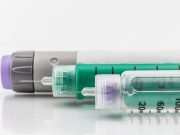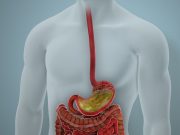Adolescents with CUD have increased odds of respiratory complications, ICU admission, mechanical ventilation
By Elana Gotkine HealthDay Reporter
MONDAY, May 6, 2024 (HealthDay News) — For adolescents scheduled for surgery, the prevalence of cannabis use disorder (CUD) is increasing and is associated with higher odds of postoperative complications, according to a study published online May 6 in Pediatrics.
Brittany L. Willer, M.D., from the Nationwide Children’s Hospital and The Ohio State University in Columbus, and colleagues performed a retrospective, 1:1 propensity-matched cohort study of adolescents with and without CUD who underwent inpatient operations from 2009 to 2022. The trend in prevalence of CUD was examined as the primary outcome.
Overall, 2,604 (0.5 percent) of the 558,721 adolescents undergoing inpatient surgery from 2009 to 2022 were diagnosed with CUD (2,483 were propensity score-matched). The researchers observed an increase in the prevalence of CUD from 0.4 percent in 2009 to 0.6 percent in 2022. Adolescents with CUD had significantly higher adjusted odds of respiratory complications, intensive care unit admission, mechanical ventilation, and extended hospital stay (odds ratios [95 percent confidence intervals], 1.52 [1.16 to 2.00], 1.78 [1.61 to 1.98], 2.41 [2.10 to 2.77], and 1.96 [1.74 to 2.20], respectively). No significant increase was seen in the propensity score-adjusted odds of postoperative mortality (odds ratio, 1.40; 95 percent confidence interval, 0.87 to 2.25) or stroke (odds ratio, 2.46; 95 percent confidence interval, 1.13 to 5.36) for adolescents with CUD.
“The increasing prevalence of cannabis use in children along with its surgical implications should provide the impetus to institute universal preoperative screening which may allow for teachable moments and deployment of mitigation strategies,” the authors write.
Copyright © 2024 HealthDay. All rights reserved.



















